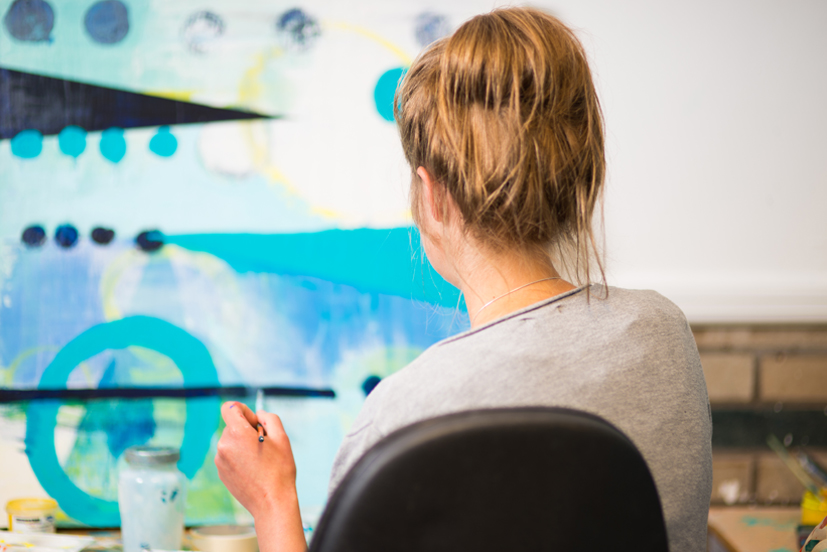BA (Hons) Photography

Course details
UCAS Code
W990
Year of entry
2024, 2025
Duration
3 YRS (FT)
UCAS Tariff
80-112
Institution Code
G53
Location
Wrexham
Course Highlights
Strong industry links
including professional guest speakers
Top 10
in the UK for teaching quality (Times and Sunday Times Good University Guide 2024)
Exhibit your work
in an end-of-year degree show
Why choose? this course?
Developed for students with a passion for independent photography, this innovative multi-genre programme combines practice, theory and professionalism. Whether you prefer to work with the still or moving image, you can creatively and conceptually explore photography on our inspiring, challenging and rewarding degree.
Students will:
- Discover a range of skills including how the lens can be used creatively as a tool for storytelling, specialist and experimental camera techniques, lighting for studio and location work, editing and post-production.
- Be encouraged to acquire unique approaches to the photography disciplines.
- Develop and research your own ideas in relation to project briefs, learning transferable skills needed to work as an imaginative professional.
- Generate and produce ideas through location and studio work.
- Be guided in making submissions for international galleries, expositions, festivals, drama, documentary, advertising, music media and other forms of digital imagery and visual effects.
- *Study a course that has been ranked 5th in Wales as part of the Art & Design subject league table for Teaching Quality in The Times and The Sunday Times Good University Guide 2023.

Art and Designat Wrexham University
Key course features
- Close links to cultural and creative organisations across the Northwest and Wales such as Open Eye Gallery, FfotoGallery Newport, Tate Liverpool, FACT Foundation for Art and Creative Technology.
- Access to the newly constructed large scale industry standard Infinity-Curve Photographic Studio – a first in North Wales!
- Links with the leading galleries and arts organizations from around the North West offering support and advise, tours and talks as well as portfolio reviews.
- Regular field trips to studios, galleries as well as photography and film festivals.
- Be part of an end of year degree show exhibition.
What you will study
YEAR 1 (LEVEL 4)
Year 1 provides introductory skills in design and critical analysis will be developed. There will be an emphasis on creative problem-solving and basic research methodologies.
MODULES
- Contexts 1
- Visual Communication
- Light & Lens Based Media
- Contemporary Practices
- Time as Visual Language
- Introduction to Industry
YEAR 2 (LEVEL 5)
Level 5 will focus on advancement in research skills and design methodologies. You will focus on synthesizing theory and practice, with an emphasis on emerging trends.
MODULES
- Contexts 2
- Visual Language and Cultural Contexts
- Print & Production
- Specialist Study
- Creative Futures: Making a Living
YEAR 3 (LEVEL 6)
During level 6 study high-level research skills, critical thinking, and professional practice will be the focus. There will be independent projects and your collaborative work will demonstrate advanced understanding and application.
MODULES
- Practice as Research: Photography
- Presenting Practice to Audience: Photography
The information listed in this section is an overview of the academic content of the programme that will take the form of either core or option modules. Modules are designated as core or option in accordance with professional body requirements and internal academic framework review, so may be subject to change.
Entry requirements & applying
The academic requirements for the course are 80-112 UCAS tariff points at GCE A-level or equivalent but all applications are considered on an individual basis, and we also take work experience into consideration, vocational training/qualifications as well as individual motivation and potential are also key aspects in selection.
Teaching & Assessment
To enable students to develop creatively, formative and summative feedbacks are given.
Formative assessment offering advice on how to improve your work occurs at key points before Christmas and before Easter. This provides time for students to reflect on their progress prior to a final or summative assessment.
Assessment is designed to enable students to participate in the measurement of their own progress. Students will submit a range of coursework including an online reflective journal/blog, sketchbooks, design sheets, finished artworks, screen-based work, installations, technical/production files, essays and audio-visual presentations.
Teaching and Learning
The majority of the active teaching and learning is studio/workshop based and practical in nature supported with lectures, demonstrations (both onsite and on location), tutorials, seminars and critiques. There is also a programme of talks by specialist guest speakers as well as field trips.
Wrexham University is committed to supporting our students to maximise their academic potential.
We offer workshops and support sessions in areas such as academic writing, effective note-making and preparing for assignments. Students can book appointments with academic skills tutors dedicated to helping deal with the practicalities of university work. Our Student Support section has more information on the help available.
In terms of particular needs, the University’s Inclusion team can provide appropriate guidance and support should any students require reasonable adjustments to be made because of a recognised prevailing disability, medical condition, or specific learning difference.
Career prospects
Our Careers and employability service is there to help you make decisions and plan the next steps towards a bright future. From finding work or further study to working out your interests, skills and aspirations, they can provide you with the expert information, advice and guidance you need.
Your degree will prepare you for work in art and design, film and photographic industries and in education.
Photography, like all of our Art and Design undergraduate programmes, has a strong vocational and academic ethos that aims to ensure graduates acquire a range of vocationally relevant skills. Integral to this ethos is the responsibility to ensure that our graduates have a portfolio of abilities and attributes which will allow them to thrive in the 21st century workplace. It takes into account the fact that the future needs of the creative industries are likely to be very different. It therefore aims to prepare ‘independent learners’ who on completion of their studies are able to flourish within increasingly diverse professional contexts.
You will gain a high level of realistic and practical experience of working in the professional creative environment whilst you are on the programme. You are encouraged to initiate, organise and participate in off-site projects and engage in professional opportunities, including commercial activities that have the potential to launch their career in photography.
Many Photography graduates go on pursue careers as:
- Independent film-makers, directors, photographers in large or small companies
- Freelancing or setting up in business
- Independent art practice
- Teaching in further or higher education or in primary and secondary schools
- Gallery or other forms of exhibition work, or as education officers
- Researchers
- Technicians
Further study opportunities are also available at MA or PGCE level.
Fees & funding
You do not have to pay your tuition fees upfront.
The fees you pay and the support available will depend on a number of different factors. Full information can be found on our fees & finance pages. You will also find information about what your fees include in the fee FAQs.
All fees are subject to any changes in government policy, view our undergraduate fees.
Accommodation
If you’re looking for a place to stay while you study then take a look at our Accommodation to get more information on your options, including our on-campus halls of residence Wrexham Village.
Subject to validation
Courses shown as “subject to validation” are new courses which are in development and the details of these courses are in the process of being finalised through the approval cycle, known as the ‘validation’ process. As soon as the programmes are validated the details of the course will be confirmed. The majority of new courses that are still ‘subject to validation’ are approved by the validation process; however, this is not guaranteed and should the course not go ahead as planned, or be significantly amended, you will be informed by the university and assistance will be provided to those who have been offered a place to find a suitable alternative course either at Wrexham University or at another provider.
International
If you are applying as an European / International Student, and live outside of the UK, you should make your application through our online application system, Centurus.
For information about the university’s entry requirements for EU/international students, please visit our international section.


